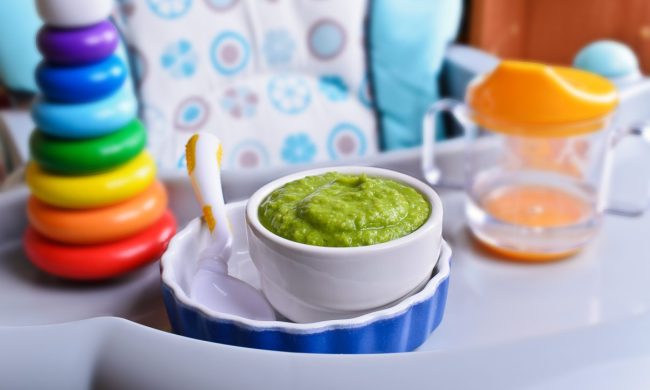What is most important is that you feed your baby, in whatever form that comes in. If you go with a formula, it could be trial and error before you find one that your baby likes. You may also find out that your little one has a sensitive stomach.
If that’s the case, you have to be really careful what kind of formula and foods you feed your baby. The wrong formula could really upset their little stomach, which could lead to long sleepless nights for you as parents. There are some ingredients to look out for in your baby’s formula, good and bad.

The symptoms
First, you need to be on the lookout for signs that your little one has a sensitive stomach.
If your baby is crying for no reason after a feed and is extremely gassy, they might have a sensitive stomach. Yes, it could only be gas, but if it’s frequent and constant, it could be their stomach. If your baby is spitting up all of the time, that could also be a sign. Again, babies spit up all of the time, but you are looking for a constant spit-up schedule.
If your baby cannot keep formula down and is constantly throwing it up, they could have a sensitive tummy. It’s their body’s way of telling them to stop trying to force it down. They’ll also be cranky and angry during feedings because they’re hungry, but they know this will only make it worse in other ways.
Ingredients you want
If you, or your baby’s pediatrician, wants you to try a different formula, there are a few ingredients you want to look for:
- Iron: No matter what formula you go with, make sure it is iron-fortified. You want to prevent anemia from the start.
- LLG probiotics: This helps with your baby’s digestion of the formula and helps cut down on the amount of gas they might have. It’s also good if you don’t know if your baby has any allergies yet.
- 2-FL HMO: If you can find a baby formula with this in it, and you can afford to get it, it’s worth it. This prebiotic is the same that is found in breast milk. This is super important in helping to raise your baby’s immune system.
- DHA and Choline: These nutrients are naturally found in breast milk, so it’s great for your baby to have these in their formula. These help your baby develop cognitive function so they can hit their fun little milestones.
- Omega 6 ARA and Omega 3 DHA: These fatty acids are great for your baby as well. They are also found in breast milk and are important for eye and brain development.

Ingredients you don’t want
There are also ingredients you should avoid to help keep your baby’s tummy safe.
- Lactose level: Your baby may be lactose intolerant or have a sensitivity to lactose. Check the formula to see whether it has lactose or not.
- Mineral oil: While it’s not a bad thing for you as an adult, mineral oil can be terrible for a baby to ingest. Mineral oil can act as a laxative, and it would be hazardous to a baby’s health to have bad diarrhea.
- Faux iron: While your baby does need real iron, faux iron is different. It’s hard for a baby’s stomach to absorb it, which can be dangerous.
- Sugar and carbs: Sugar at such a young age isn’t good because it can lead to childhood obesity. If you introduce sugar too early, you can set your baby up for wanting sugary foods later. While carbs aren’t terrible, you should limit the amount your baby has. They could also lead to weight gain in the future.
It might be tedious to do but go through the ingredient list on formulas before buying. Make sure they don’t have the bad stuff in them. What you want to focus on is the good stuff. Try to get as close as you can to finding a balance you are comfortable with.
It might take a few tries to find a formula that won’t upset your little one’s stomach. If you can’t afford to buy a few different ones, talk to your pediatrician or your OBGYN. They will usually have plenty of samples you can try to find the right one without wasting a ton of money. If you find one that your baby likes and can keep down, see if they have any coupons. It never hurts to ask.
Good luck in finding a formula your little one can enjoy. Remember, the important thing is that your baby is eating. Don’t worry if their food is coming from you or a store. Either way, you’re doing great!
Meanwhile, if you’re looking for solutions to constipation in formula-fed babies, just read on further.



